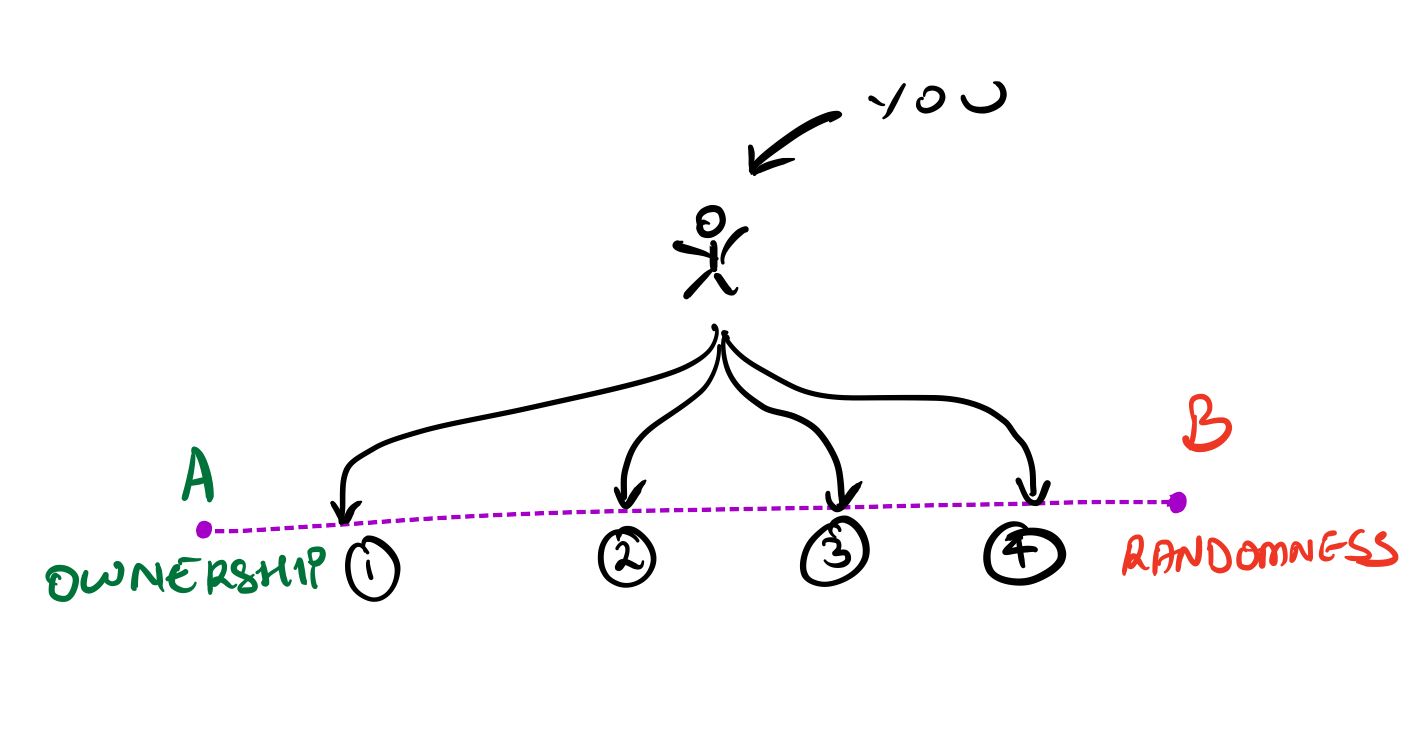The Excuse Moat
The Purpose of an Excuse
Hey friends,
This week, I want to talk about excuses (or “explanations”). One pattern I’ve noticed in humans is that, as social creatures, we’re always creating a moat of excuses around us. We do this because we have intuitively resolved to embrace failure. After all, “failure is the step to success,” right? Or so they say.
But failure is not necessary.
It’s bad to fail, but excuses make things worse:
- They let you off the hook.
- They don’t allow you to do “deep reflection”.
- They make you tell yourself a story for why it wasn’t your fault.
But, the point is that it could’ve been your fault. Yes, things are random, but maybe, you could’ve planned better. Yes, it wasn’t in your control, but maybe, you were not good enough. Yes, things are hard to understand, but maybe, you didn’t know any better. (Of course, as I write this, chances are that things could get toxic, but embracing this attitude is the key to winning in advance.)
When you make an “excuse moat”, you shrug off responsibility. But when you don’t make an excuse — regardless of whether it was your fault or not — the “slings and arrows” of unfiltered feedback hit you. Then, you reflect. Then, you grow. And then, you’ve won, in advance.
Of course, you don’t want to develop a toxic self-relationship in which you criticize yourself to the point of exhaustion. The idea is to understand that even if uncontrollable events played a role in your “failure,” they do not absolve you of responsibility.
Now, you might say that things are not black and white, as I’m making them come across. In which case, it’s best to have a spectrum, on which you can place yourself each time you “fail.” I call it the ‘ownership-randomness spectrum.’

Every time you fail, ask yourself whether you’re at point A (ie you take full ownership of your actions) or point B (ie you attribute your failure to ‘bad luck’). If you’re like me, you’d fall between points 2 and 3.
The key: Try moving toward A as much as possible, without shooting yourself in the foot. That’s when one truly grows.
Until next time,
Abhinav
The Podcast
This week’s episode is particularly long — 2 hr 30 mins. Listen at your discretion. 😊
In this longform episode, we talk all things media. With the rise of TikTok, the GameStop saga, the influencer economy, and Clubhouse, we begin with understanding how we got here. The publishing bubble, the old and physical media, and information asymmetries of the past.
Then came the Internet, which changed everything. Distribution, physical media's monopoly, was suddenly eaten up by the Internet. Multitemporality was the new norm. Here, we talk of media consolidation, shared experiences, Disney, and Buzzfeed.
The future will lead us into a Metaverse of sorts. What does that look like? Where are we headed? How does traditional media change because of new-age media?
Tune in to listen to this rather comprehensive take on the past, present, and future of media. (Listen on Spotify, Google, Apple, or our website.)
Our Commonplace Book
- This article on when are we truly productive deeply impacted how I think about work, life, and productivity. Because it’s so different from all the self-help and productivity stuff you find out there, it’s particularly unique.
- A friend shared this thoughtful Reddit thread, a gem. See here: Everything you have today can be explained from tiny decisions you've made in past years.
- This video by Harari is the most ideal to develop the perfect understanding of nationalism: